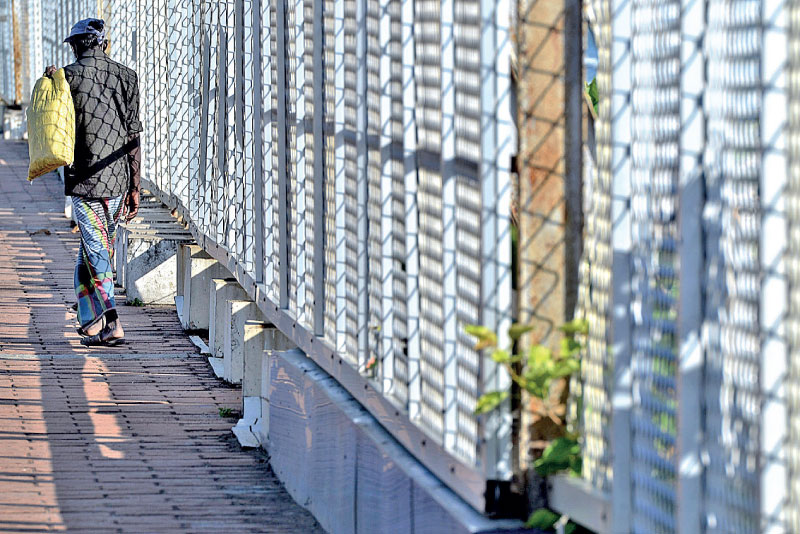Tuesday Feb 17, 2026
Tuesday Feb 17, 2026
Thursday, 28 October 2021 00:00 - - {{hitsCtrl.values.hits}}

The COVID-19 pandemic is a turning point in human civilisation and the pandemic is sending a glaring warning to all the extractive institutions, be it political or economic or giant businesses and industries – Pic by Shehan Gunasekara
By Jayasri Priyalal
Never miss a crisis; capitalise, and initiate bold changes to leap forward with a strategic vision. An inspiring phrase: but can we make it into reality?
There is nothing to hide; the country’s finances are in the doldrums. Defending the Sri Lankan Rupee amidst the depleted foreign reserves is nearly an impossible task. The neo-liberal economic policies evolved on neo-classical economics crashed with the excessive financialisation in 2008.
Maximum consumption leading to ultimate social wellbeing, proven a myth, bloating all economies with unmanageable debt. Whether it is in developed or developing economies, all face the same fate. But policymakers in Sri Lanka repeatedly got cheated by the cabal of financiers, who acted in self-interest, indebting future generations channelling investments to useless, wasteful projects pocketing the short-term gains.
As the play unravels, the political leadership had neither a vision then, nor at present or for the future. The irony is our judicial system could not deliver justice, and the crooks and criminals are running scot-free. A bad precedent, and for sure, as things stand today, we will be cloning another set of thieves very soon before we hit rock bottom.
Unfortunately, Sri Lanka is in a dilemma without a futuristic political leadership. And the current political and bureaucratic system has completely anaesthetised intellectual collectivism in finding reliable original solutions for us to overcome the challenges, getting so-called bankrupt experts who ruined the nation’s resources in the past to navigate the economy out of the woods into the future – a daydream.
History has proved that pandemics have been critical turning points in human civilisation. The Black Death in the fourteenth century ended the serfdom in Europe, and payment of a wage for labour was institutionalised.
The great influenza pandemic (H1N1) in 1918 mobilised the socially-oriented people’s movement to defeat ruthless competition through colonisation and imperialistic wars and setting up of the International Labour Organization (ILO) in 1919, which standardised the eight hours of work, and 48-hour work week across the world through its first convention. Workers movement across the regions united in securing a decent life through meaningful and dignified work.
The COVID-19 pandemic is also going to make a similar turning point in human civilisation and the pandemic is sending a glaring warning to all the extractive institutions, be it political or economic or giant businesses and industries. The inevitable will happen, the unsustainable debt-burdened current financial architecture will get wiped out. Is Sri Lanka ready to face the challenge?
For far too long, we have been enjoying fake prosperities measured on outdated performance and productivity measuring indicators and returns on equity. Neo-banks, tech-fins and alternative finance are rapidly changing the status quo.